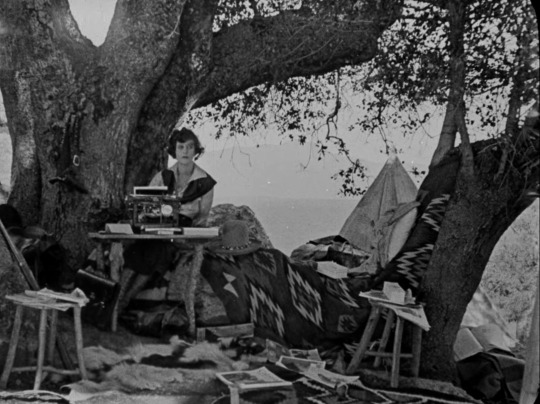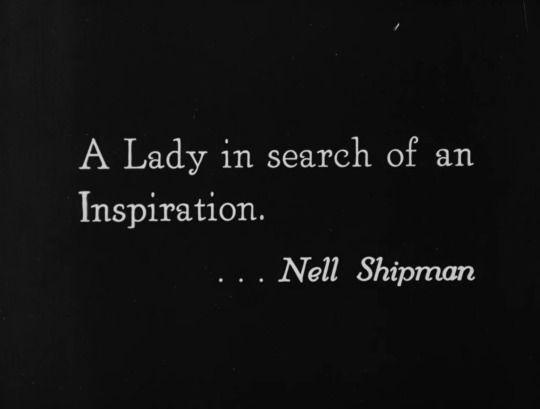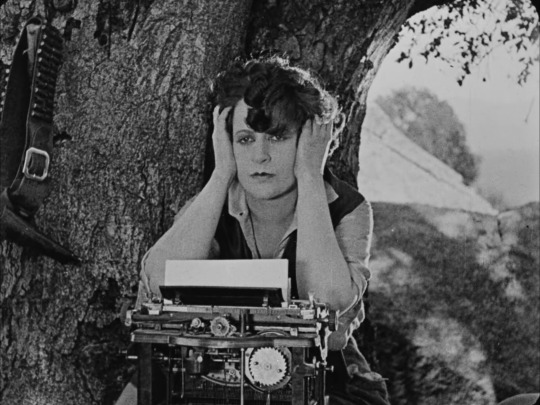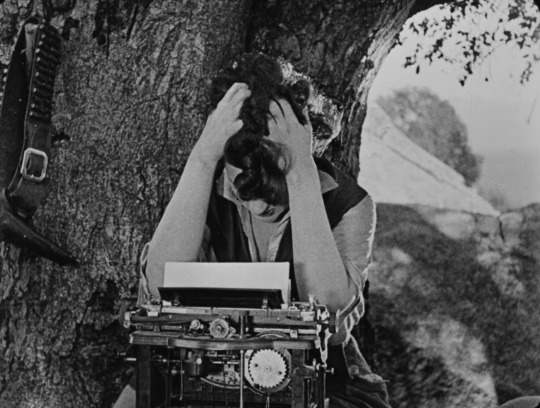#Bert Van Tuyle
Photo




Something New, 1920 (dir. Nell Shipman, Bert Van Tuyle)
110 notes
·
View notes
Photo

Something New (1920) d. Nell Shipman and Bert van Tuyle
0 notes
Text
Nell Shipman, silent-era actress, writer, producer and director, gives new meaning to the phrase “film pioneer”. A truly adventurous soul, at the height of her career she starred in a series of outdoorsy action films featuring a menagerie of animals and seriously risky stuntwork – when she nearly drowned shooting a scene in a river, it didn’t occur to her to complain: instead she said, “I should have paid Vitagraph for the adventure.” Furthermore, she worked completely outside the system, running her own production company and filming her “little dramas in big places” deep in the hills of Idaho, more than 1,000 miles north of Los Angeles.
But isolation from Hollywood has contributed to a neglect of her legacy. Along with many of her contemporary female film-makers, she was missing from the first histories of the film industry, and remains little-known. A new documentary directed by Karen Day, The Girl from God’s Country, intends to rectify that. The film tells the story of Shipman, but also broadens the scope to examine how her peers’ histories have also been erased and the impact of that on the modern industry and on generations of female filmgoers.
Canadian-born Shipman was a thrillseeker through and through, who “refused to be a lady” and ditched school early to go into rep, becoming what she called a “vagabond actress”. She wrote her first novel soon after marriage and the birth of her first child, then moved into screenwriting. When the star of a film failed to turn up to the set one day, Shipman stepped in and started her career as a screen actress. Her breakthrough role was in Vitagraph’s God’s Country and the Woman (1916), an adaptation of a novel by James Oliver Curwood, bestselling author of American wilderness adventures, and the first in a series of God’s Country films.
In 1918 she survived a bout of Spanish flu; following her recuperation, she co-founded a production company and leaving her husband behind, headed to Canada to make one of her most famous films, Back to God’s Country (1919). Shipman adapted the film from another Curwood novel, sidelining the original protagonist, a Great Dane, and focusing on a woman, whom she herself played. A big box-office success – Canada’s best-performing silent movie – the film is notable for Shipman’s naked bathing scene, one of the earliest examples of nudity in mainstream cinema. A trade-press ad cautioned: “Don’t book Back to God’s Country unless you want to prove the Nude is NOT Rude.”
Nell Shipman
Having established her skills as a writer and actress, in 1921 Shipman turned down a contract from Sam Goldwyn, and went north with her film crew and around 70 animals. Shipman believed that “grand movies demand grand landscapes” and in Priest Lake, Idaho, she had found “the loveliest, wildest, most perfect place on earth”.
Running a new outfit called Nell Shipman Productions, co-directing (with her new partner Bert Van Tuyle), writing and acting, she returned to the wilderness themes that suited her, playing an action heroine roaming the rugged landscape. Animals featured prominently. Shipman cared deeply for her furry co-stars, and she knew their value: “They are all scene-stealers and we give them full stage, which will earn us a million hearts on screen.”
She was right about the animals, and the rocky landscapes too. Shipman’s films are still spectacular to watch. Those mountains and bears can be picturesque, cute, or terrifying. But nothing steals the scene from Shipman’s jarringly modern heroines – beautiful, audacious girls with guns, who have the nerve to face down male antagonists and the guts to thrive in a hostile environment; but they are also romantic women, who have a natural empathy with living creatures.
Nell Shipman
The features Shipman’s new company shot included the gold-prospecting drama The Grub Stake (1923) and The Girl from God’s Country (1921) in which she played twins, and got stuck into some hearty fight scenes. The work was dangerous – Shipman did her own stunts and she nearly drowned again when she fell through the surface of a frozen lake. On one remote shoot, she and Van Tuyle were stranded in a snowstorm for two days; another time her beloved dog was poisoned by disgruntled locals.
Doing business was never easy either. After shooting and editing her films, Shipman had to lug the reels around the New York offices of independent film distributors to get them shown – and see a return on her investment. The distributor she found for The Grub Stake went bankrupt shortly afterward, meaning the film was never released. In 1924, Nell Shipman Productions followed suit. She and Van Tuyle separated and the animals were all sold to a zoo.
In Day’s documentary Shipman emerges as a fearless filmmaker, who exemplifies the pioneering spirit of early cinema. Many of her descendants have followed her into the entertainment business, and her exploits are rightly celebrated in her family. Her story deserves to be shared more widely so that the Shipman spirit can inspire future generations of filmmakers.
This article was first published in the January 2017 issue of Sight & Sound.
You can read more about Nell Shipman in Silent Women: Pioneers of Cinema.
Find out more about Karen Day’s Nell Shipman documentary here.
Nell Shipman’s The Grub Stake is the opening film of the Hippodrome Festival of Silent Cinema, which runs from 22-26 March 2017. The film will screen with a new score by Jane Gardner, commissioned by Hippfest, and an introduction by yours truly. Book tickets here. The full programme will be unveiled soon.
Nell Shipman and the pioneer spirit of silent cinema Nell Shipman, silent-era actress, writer, producer and director, gives new meaning to the phrase “film pioneer”. A truly adventurous soul, at the height of her career she starred in a series of outdoorsy action films featuring a menagerie of animals and seriously risky stuntwork – when she nearly drowned shooting a scene in a river, it didn’t occur to her to complain: instead she said, “I should have paid Vitagraph for the adventure.” Furthermore, she worked completely outside the system, running her own production company and filming her “little dramas in big places” deep in the hills of Idaho, more than 1,000 miles north of Los Angeles.
5 notes
·
View notes
Photo






Bert Van Tuyle, along with his dog, drives a 1920 Maxwell across the Mexican wilds to rescue Nell Shipman, who then takes the wheel to save him from a gang of bandits in Something New (1920)
#nell shipman#bert van tuyle#1920#something new#1920s#1920s film#1920s gifs#film#film gifs#maxwell car#1920s car#antique car#classic cinema#silent film#classic movie#made by me#women in cinema
43 notes
·
View notes
Photo

Nell Shipman in The Grub-Stake :: Dir. Bert Van Tuyle, USA, 1923
18 notes
·
View notes
Photo

Something New, 1920 (dir. Nell Shipman, Bert Van Tuyle)
5 notes
·
View notes
Text
Something New 1920
A young woman visiting in Mexico is kidnapped by a gang of bandits, who drag her through the rugged wilderness to their hideout. She manages to leave word for her friend Bill, who knows the country well. But when Bill cannot find a horse, his only available form of transportation is his roadster. Nevertheless, he is determined to come to her rescue, even though it means trying to drive the car…
View On WordPress
0 notes
Photo






Something New, 1920 (dir. Nell Shipman, Bert Van Tuyle)
4 notes
·
View notes
Photo

Something New, 1920 (dir. Nell Shipman, Bert Van Tuyle)
2 notes
·
View notes
Photo


Something New, 1920 (dir. Nell Shipman, Bert Van Tuyle)
1 note
·
View note

